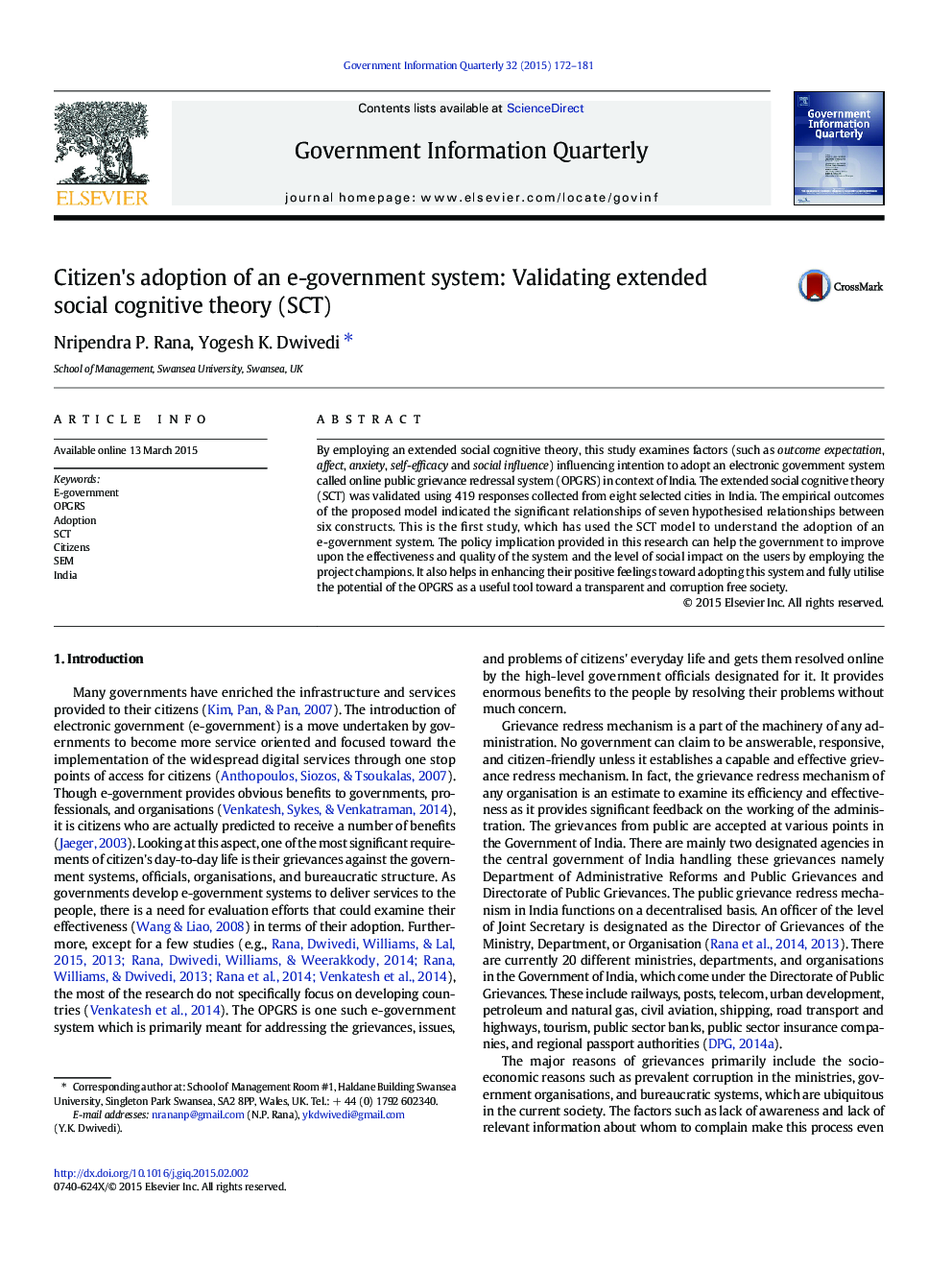| Article ID | Journal | Published Year | Pages | File Type |
|---|---|---|---|---|
| 1024274 | Government Information Quarterly | 2015 | 10 Pages |
•Countries are making good investment for implementing e-government (eGov).•Citizen adoption of eGov systems is sluggish particularly in developing countries.•The adoption of eGov systems may be influenced by distinctive set of factors.•The study examined the proposed research model based on the social cognitive theory.•The results supported all seven hypotheses between six constructs.
By employing an extended social cognitive theory, this study examines factors (such as outcome expectation, affect, anxiety, self-efficacy and social influence) influencing intention to adopt an electronic government system called online public grievance redressal system (OPGRS) in context of India. The extended social cognitive theory (SCT) was validated using 419 responses collected from eight selected cities in India. The empirical outcomes of the proposed model indicated the significant relationships of seven hypothesised relationships between six constructs. This is the first study, which has used the SCT model to understand the adoption of an e-government system. The policy implication provided in this research can help the government to improve upon the effectiveness and quality of the system and the level of social impact on the users by employing the project champions. It also helps in enhancing their positive feelings toward adopting this system and fully utilise the potential of the OPGRS as a useful tool toward a transparent and corruption free society.
